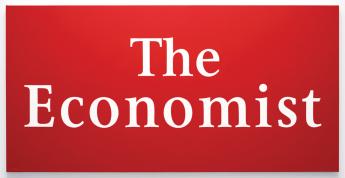0 Volumes
No volumes are associated with this topic
Economics
Interest rates as signs of the future.
Negative Interest Rates?
Switzerland recently started charging its customers interest on their deposits, and it's the only instance of doing this I feel I understand. The Swiss are after all surrounded by countries which might devalue their currency, and in the past have sometimes even expropriated the funds. So, many of these potential victims are tempted to deposit money abroad to keep their own governments from grabbing it, to the point where the ability of Swiss banks to make loans is swamped with too much money. They can't use more money, thank you, and will charge you for the security of hiding money in safety. After all, every bank charges customers for using its deposit boxes purely for safe-keeping.
And the Swedes and Germans are almost in the same position. Having been victims of their own governments once, they want to retain strong currencies, no matter what, and it has proved to be a good stance to take. They have seen too many spendthrift aristocrats get out of a Rolls Royce in order to file bankruptcy proceedings. Money floods in to take advantage of safety, and the Germanic governments can thus pay lower rates to borrow for themselves,(just as long as they don't borrow too much.) Some may remember the episode when John McCain was running for President and rushed home to assure the party bigwigs he had no plans to borrow big amounts. The whole situation reduces itself to governments having a lot of unused credit if they don't borrow, and having high-interest costs if they do. That's also why there was such an uproar when Bush 41 raised taxes in spite of his promises--he was apparently going to weaken the currency, that way. Technically, it reduces itself to finding the "sweet spot" for interest rates, which will vary depending on what your neighbors do. That's how Germanic people see things.
Southern Europe, and for that matter the rest of the world, sees a different reality. To them, you must "spend money to make money", and if your thrifty neighbors will loan it to you, it benefits both, (if the interest rate is right.) You can buy infrastructure, foreign manufacture, and prosperity. With a little luck and acumen, your trade, industry, and standard of living will prosper. Unfortunately, this ultimately leads to overcapacity, which undermines prices and prosperity, raises interest rates, and leads to a crash. At that point, it is thrifty Germanic types who get to buy things cheaply with their strong currency. Back and forth; this is the business cycle, and it has happened many times. The duration of the recession between cycles will depend on the amount of overcapacity which has developed. The duration of a recession might, therefore, be shortened by printing money to assist consumption, but diluting your store of credit is not the same as increasing it. Increasing your credit by increasing your wealth is quite different, but borrowing conceals whether you are truly wealthy or not. A history of repaying your debts is what banks depend on, not the size of your car or apartment.
There can be less obvious, even obscure, causes of negative interest rates. It is supposed the promised ending of low-interest rates by the Federal Reserve will make banks hesitate to loan money, sensing an opportunity to charge higher rates later. Adherents of this theory are urging that rates be raised as soon as possible.
Others blame the Obama administration, who obviously enjoy borrowing large sums at low rates. The Fed is supposedly independent of such pressures, but the incentive is undeniable.
Still, others feel it is unnecessary to look at specific levels. If inflation is approaching, the prospect of higher future rates has the same dampening effect on present loaning incentives, and ultimately the same effect on collapsing the stimulus.
And others (primarily borrowers) seek joy in lower rates at all times, the lower the better. It represents a chilling prospect to lenders, for anyone to talk about negative eight percent, or even ten. But it suggests faster transaction speeds and electronic gadgets to replace paper money. Part of the cause of the collapse of Lehman Brothers was the increased float in world currency occasioned by globalization, breaking single big transactions into many smaller ones. The current estimate is there is American currency in circulation in the world, amounting to $4000 per living American. And how much of that is created by illicit drug trading and other crimes, is anyone's guess. The underworld isn't interested in gadgets which record transactions, such as several variants of bitcoin do.
All in all, it will be intensely interesting to see what happens to negative interest rates, once the Fed does start to raise them. If they are only a passing fad, it doesn't matter.
Abuses of Goodwill
The news section of the New York Times relates that Karthik Romana, an Associate Professor at Harvard, has introduced an entirely novel idea about stock market economics. (The reason to emphasize the news section, is the Times rule that the Sunday Book review only prints reviews during the first week after publication release dates, a major reason for the pedestrian quality of that particular section. Reviews appearing in other sections, at still later times, may suggest experts in an obscure field have slowly waked up to something of significance.)
Even CPAs regard the work of the Financial Accounting Standards Board (F.A.S.B.) as boring beyond belief. But this 75-person non-profit organization in Norwalk CT makes the rules for what accountants do, and Romania decided to take the time to figure out why corporations so regularly overpay to merge with other corporations. This looked like the place to poke around in the incentive system which FASB creates. After all, the price the acquiring stockholder pay is very large, and the fees investment banks pay to advise the participants are well-known to be generous. Both of these incentives push the price higher, but then the price the acquired company is paid pushes the price downward. A system of kickbacks paid to the acquired directors for cooperation would certainly be a factor, but perhaps not the dominant one. Romania feels the standards for what corporations state is their earnings after the merger, may be more important. And perhaps there is also some momentum from the days of evaluating factories and heavy equipment, which once was fair, but now require a different standard of fairness for service companies with human services more to be reckoned in a sale price. Nevertheless, it creates uneasiness to hear that half of typical sale prices are now viewed as goodwill, allegedly based on projected future income. That sort of thing can quickly walk out the door in a recession, and seems likely to affect the opinions (and bids) of activist investors.
To settle the question of a fair price is above the pay grade of this reviewer. But it does seem entirely appropriate to challenge the present system and its rule-makers to make their reasoning clearer. And for shareholders of merger victims to demand to know why they should not be paid better. It is not satisfying for a pricing system which ought to be in constant tension, to remain too boring to discuss.
New Views for the Economist?

|
| John Micklethwait |
The London Economist has a new editor, and a new owner. Mickelthwait, the old editor, is now working for Blumberg, and ownership has passed from one corporation to another. The two synchronous events may or may not have anything to do with each other, but the name of Rothschild has more or less vanished. No doubt the new management will change the cover page and format a little, but we must wait for a little to see whether their editorial viewpoint has changed very much. A few token viewpoints will probably continue to be sacred, like support for American foreign policy, and admiration for the British socialized health system. But there is a sign, one change may be significant.
Twice in the last few weeks, there has been a serious discussion in the magazine for serious economists, of the same newly-discovered fact. Whenever the private sector generates strong profits, the Economist sees strong evidence the majority of profits soon appear as increased credit in the real estate sector. Industrial profits transform into real estate investments, in other words. No explanation for this strange observation is offered, and perhaps it is just an observation, without a current explanation agreed by everyone. But after skipping that gap, the observation certainly has the potential to explain much of the cyclicity of markets, offering an explanation of why market upturns are so often followed by real estate crashes. And, if we are lucky, followed by some reasonable proposal for preventing such crashes?
If no one else is going to step forward with an explanation, let me offer one. For the small investor, real estate has long been the only available way to get into speculation on interest rates. A thirty-year mortgage starts with small equity and a large debt, and gradually the borrower becomes a lender. Business schools teach that real estate is "where the rubber meets the road". But seeing a real estate boom, the rest of the market heads for the exits.

|
| The Economist |
If that's the one-liner we are looking for, it probably neglects the last step. When wealth gets created, by a stock market boom or any other method, most small investors have discovered only one safe and comfortable way to participate. So, having temporarily exhausted that approach, they hesitate. During that period of hesitation, they build up an invisible form of wealth, called credit, which enables them to borrow were before that, they had no credit. The American discoverer of this puzzling concept was Robert Morris, the banker of the American Revolutionary War. And come to think of it, didn't Morris himself encounter bankruptcy and debtor's prison -- from real estate speculation on credit?
So what's new? What's new is that longevity has increased to the point where it is sensible to liquidate the real estate and spend the proceeds on retirement. Having achieved lender status, they then aim to spend their last dime, on the last day of their lives. That seems just perfect, but where have all the credit gone?
The Nation, 1865-2015
Franklin Roosevelt famously put together a political coalition which contained both rich white people and blacks. It has long seemed a puzzle that such extremes of society could join in an enduring coalition, but perhaps the 150th anniversary of The Nation supplies a clue. The magazine must have its share of ordinary working people, but the editorial core seems to be drawn from rich whites and poor blacks. They don't share the same dances and supermarkets, so why should they share a common political viewpoint?
So perhaps a clue to outsiders is the founding date of the magazine -- 1865. That was the time of Reconstruction in the South. It may have been the time of other public movements, too. It led to the Ku Klux Klan and violent re-segregation movements, Governor Faubus and the rest. But it must have offended the children of the planter class in the South, as well. It must have offended the border states, forced to stand silently while their leaders went the other way. The great European immigrations were several decades later, so the present composition of the magazine's leadership enlisted later volunteers perhaps. So perhaps the present leadership does not completely reflect the views of the founding members. And Richard Nixon's Southern Strategy mixed things up, considerably.
Does anyone know the history of the founding?
Innovation and Automation

|
| Innovator Image |
The innovator is protected by patents. To some extent, the public is harmed by them, because the public wants the innovation to be cheaper. is reported to have hated patents, because they harmed the public. But less innovation harms the public, too.
Once the inventor invents an innovation, he wants to see it work. Often he employs a craftsman to make one that works, money no object. A few rich people hire artisans to make high-priced versions for various purposes, some of them noble, some just frivolous.
So, some entrepreneur risks a lot of money to build a factory, hire cheap labor if he can find it, and mass-produces a cheaper product. He hates patents, but he loves cheap labor, and he particularly hates automation, which threatens his investment.
But automation is cheaper, so it wins. The Automator has to spend a lot of money to accomplish automation, but his cheaper product puts the earlier factories out of work, so they fight automation as long as they are excluded from it, but eventually surrenders. Corporations almost always defeat factories, family businesses, and artisans. Ultimately, automation, corporations and possibly inventors, tend to win. Hand craftsmen, family businesses and cheap labor tend to lose. High volume usually defeats high margins of profit, so the public usually wins, too. If the entire cycle is fast enough, the patent protects the inventor. If it's too slow, the investor loses. It's easy to see what side each of these participants will take in the political battles, assuming the hope of profit is what motivates each one of them. The public has the votes, so at first, they can do almost anything. In the long run, more innovation and cheaper prices will win public approval, but in the short run, patent impairment and job losses may hold things up.
So what is in the public interest? Job retraining and regional movement of labor are two things which come up, their expensiveness probably varies with the particular issue. But one universal good sometimes clashes with another. Is home ownership always a good thing? Are there not times when it would be better to be a renter, and move to a different employment location when your job disappears?
There are certainly times when it is better to own your own home. I finally sold my house after living in it for sixty years. The real estate agent was rueful. He saw it as his losing six sales commissions, over the years, because I did that.
5 Blogs
Negative Interest Rates?
New blog 2015-12-01 21:22:47 description
Abuses of Goodwill
New blog 2015-11-26 19:04:28 description
New Views for the Economist?
 New blog 2015-11-27 02:24:18 description
New blog 2015-11-27 02:24:18 description
The Nation, 1865-2015
New blog 2015-11-28 19:04:34 description
